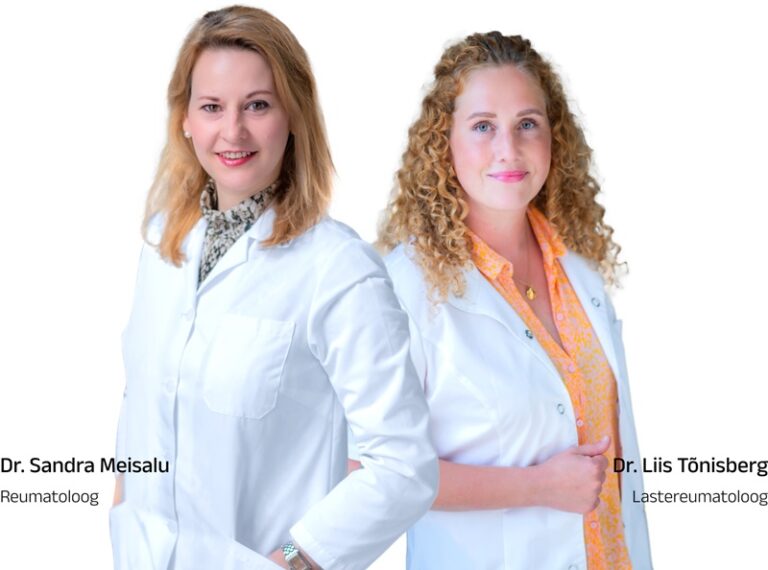The clinical picture of inflammatory rheumatic diseases can be very varied and they can involve many different organs and organs, causing significant damage. Among those suffering from these diseases, there is a relatively high proportion of children, young people and middle-aged people.
Some rheumatic diseases are related to aging (osteoporosis e bone loss, osteoarthrosis e joint wear, etc.). About one fifth (20%) of the total population suffers from some rheumatic disease. Women are affected three times more often than men; this difference decreases with increasing age. They are more often affected between the ages of 20 and 60. (The information comes from: TõnuPeets book “Rheumatoid arthritis treatment manual in Estonia”).
Often, rheumatological diseases have a difficult course and cause absence from work. These diseases very often cause disability and, in connection with this, there is a large social burden on society. As a result of early diagnosis, timely and modern complex treatment, many difficult rheumatological diseases can be controlled. the rapid development of immunology has opened up new possibilities for the diagnosis and treatment of rheumatic diseases.
Biological treatment can be used in patients whose previous treatment with traditional drugs has not yielded results and the disease remains highly active. These drugs have very well-defined inflammation-mediating targets to which they attach to act. Biologics are manufactured protein molecules. Biological treatment is used for various inflammatory joint diseases and systemic connective tissue diseases. These include rheumatoid arthritis, psoriatic arthropathy, ankylosing spondylitis and juvenile idiopathic arthritis, vasculitis, systemic lupus erythematosus, and myositis.
Rheumatology’s arsenal includes diagnostics and treatment of rheumatic diseases: various pain and inflammation medications, disease-modifying medications, (including biological therapy) medications affecting bone tissue metabolism, joint punctures and intra-articular injections, joint ultrasound examinations, densitometry (bone density measurement), plasma exchange, etc.
